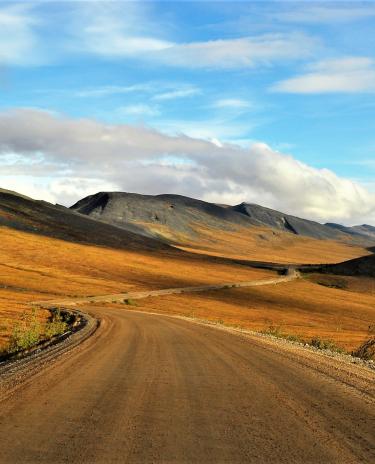
Important information
Travel and Safety Information

Public safety information
Trip planning is an important part of travel preparedness, but even with the best planned trips sometimes the unexpected happens, and if it does, we want you to know about it. For the latest, most accurate emergency information in the Territory, check the Government of the Northwest Territories Public Safety page.
Highway conditions and closures
Road conditions can change quickly with often little or no warning. To get official updates on highway and ferry conditions and closures, visit the official Highway Conditions page or by call 1-800-661-0750.
Wildfire restrictions or closures
NWT Parks may sometimes have to close due to wildfires or restrictions on campfires during periods of dry or warm weather. Information about fire bans and territorial park closures can be found on the Advisories page. You can also follow us on Facebook for updates.
See the latest information on wildfire activity in the Territory.
Water safety
While exploring the stunning deep lakes, rushing rivers, and magnificent waterfalls in the territorial parks, it's important to be aware of the unique challenges they present, and the safety measures you can take in and around the water. Understanding water safety and planning for your visit is essential to having fun and memorable outdoor experiences.
One key aspect of water safety in Northwest Territories parks is understanding the water conditions. The water in this region can be cold even during summer months, posing risks of hypothermia.
Be mindful of water hazards. The rivers in some of our parks can have strong currents, steep cliffs, and sudden obstacles. We advise checking local guidelines for route information, always using a life jacket when boating, not swimming alone, and closely supervising children in and around the water. Many NWT Park beaches have life jackets for loan for additional safety.
Most territorial park beaches are unsupervised and range from popular to secluded, so it's essential to be mindful of your surroundings and of others enjoying the water. Boaters should steer clear of swimming areas, reduce speed near beaches, and be vigilant of their surroundings. Swimmers should avoid areas marked for boat traffic, swim within designated swimming zones, and be cautious of boats entering or leaving the water.
Boat Safety
Boating safety and etiquette are also critical when enjoying lakes and rivers in our parks. Please reduce your speed and minimize wake in high-use areas, especially near docks, beaches, and other shoreline infrastructure. Excessive wake can tip small watercraft, endanger swimmers, and damage docks or boats.
Boaters should watch for and give space to non-motorized users such as canoers, kayakers, and paddle boarders, who may be harder to see and more affected by waves. Always be alert, share the water responsibly, and respect designated swimming and no-wake zones to ensure a safe and enjoyable experience for everyone. You can find more boating safety information on the Government of Canada’s website or on the GNWT Environment and Climate Change website.
Preparedness
Whether it's a day-long hike or a week-long camping trip, there are basic survival items you should always have to be well-prepared for the remote and wild nature of the region. Travellers must understand the importance of being self sufficient, carrying essential supplies and planning for the unexpected. Carrying a personal locator beacon is recommended for backcountry travel on either land or water.
Cellular service is unavailable at many NWT Parks. Check park advisories and highway conditions before departing.
Your road trip isn’t complete without a well-packed vehicle filled with all the essentials. Don’t leave the house without bringing these essentials along:
- First aid kit
- Roadside emergency kit
- Spare tire
- Food and water
- A paper map
- Bug spray and bear spray
Wildlife
The Northwest Territories is home to dozens of species of wildlife, including bears, wolves, bison, coyotes, foxes, beavers, ravens, and porcupines. Encountering wildlife can be a thrilling experience, but it's essential to remember that these animals are best appreciated from afar.
While traveling to and in parks, it's important to be aware of the potential for wildlife on or near roadways. In particular, bison may cross highways unexpectedly, posing risks to both drivers and the animals themselves. Obey speed limits, stay alert for wildlife crossing signs, and be prepared to slow down or stop if animals are near or on the road. Do not leave your vehicle to get a closer look at the animal. Stay in your vehicle a safe distance away as approaching wildlife can provoke defensive reactions.
If you encounter a wild animal while on foot, keep a respectful distance, avoid sudden movements or loud noises, and never attempt to feed or interact with the animals (it's illegal!).
A clean campsite, proper storage or disposal of food and garbage can prevent unwanted wildlife encounters. Seal away human and pet food or store them out of reach, and never in your tent.
Keeping pets on a leash can reduce the likelihood of it aggravating or attracting wildlife.
To avoid encounters during activities such as hiking, travel in groups, make noise and carry bear deterrents, such as bear spray and noisemakers.
Avoid cleaning fish or animals in the parks, unless there is a designated station.